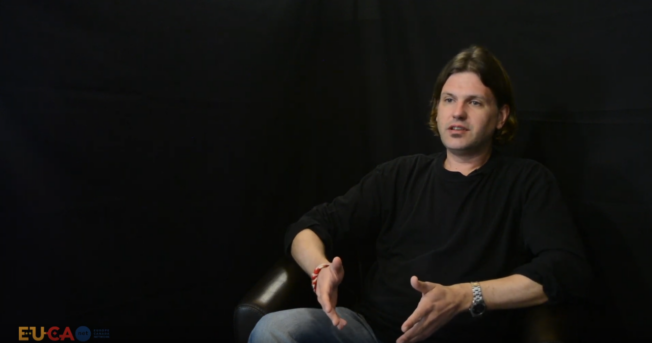Prof. James Tully: The Roots of Modern Democracy and the Need for Participatory Democracy
By EUCAnet Team
James Tully (Professor Emeritus of Political Science and Law at the University of Victoria) participated in the video series on Populism and Democracy during the international conference “Constitutionalism in the Age of Populism”, March 6-8, 2020. He accepted the invitation to respond to a bold question “What are the greatest challenges to democracy?”
Reflecting on the challenges that democracy is facing today, James Tully recalls the historical meaning of “democracy” in the West. Tully stresses that this word, in its original meaning in Greek, indicates a form of government in which the people themselves exercise power, in contrast with other forms of government where some segment of the population rules over the other. However, in the 18th and 19th centuries, as the term “representative democracy” started to be used, the expression conveyed the meaning of the rule (-archy) over the people. Thus – stresses Tully – understanding the meaning of “participatory democracy” has become increasingly difficult. Eventually the term came to be considered as a form of “anarchy”, while, in fact, anarchy is just the refusal of the differentiation of society into those who rule and those who are ruled.
For Tully, even if we call modern societies “democratic”, from a Greek point of view they are radically unequal, dictatorial or rule-based in all the major relationships that we live in. This condition stems from the fact that in the modern world, representative governments have been subordinate to a set of economic, military, and educational processes that are not based in self-government at the local level. Therefore – says Tully – “the great struggle today”, whether it concerns populism or climate change, is to “rebuild locally and globally a perma-culture of participatory democracy”. But this is something we are already witnessing “around the world in local organizations and then in networks among local organizations” – stresses Tully – and “people are being the change themselves by just engaging in educating themselves and others in local democratic practices”.
This video is part of the CEDoD project and was produced as part of the event “Constitutionalism in the Age of Populism”, which took place on 6-8 March, 2020 in Victoria, BC. CEDoD stands for “Canada Europe Dialogue on Democracy: Democratic Deficit and the Rise of Populism in Europe”. This project is co-funded by the Erasmus+ Jean Monnet Action of the European Union, the Centre for Global Studies, University of Victoria, the Social Sciences and Humanities Research Council of Canada (SSHRC), the Faculty of Law at the Eötvös Loránd University (ELTE), the Australian Government through the Australian Research Council and the University of Victoria: the Faculty of Law, the Centre for Global Studies, Vice President Research Office, Faculty of Humanities and the Faculty of Social Sciences. The European Union support for the production of publications does not constitute an endorsement of the contents which reflect the views only of the authors, and cannot be held responsible for any use which may be made of the information contained therein.









